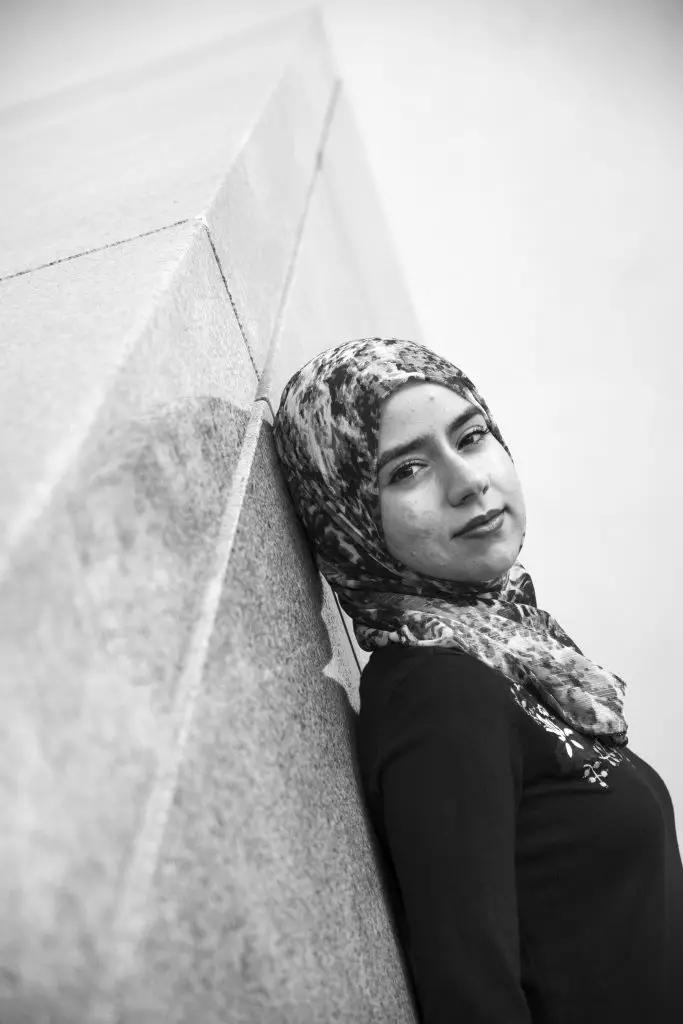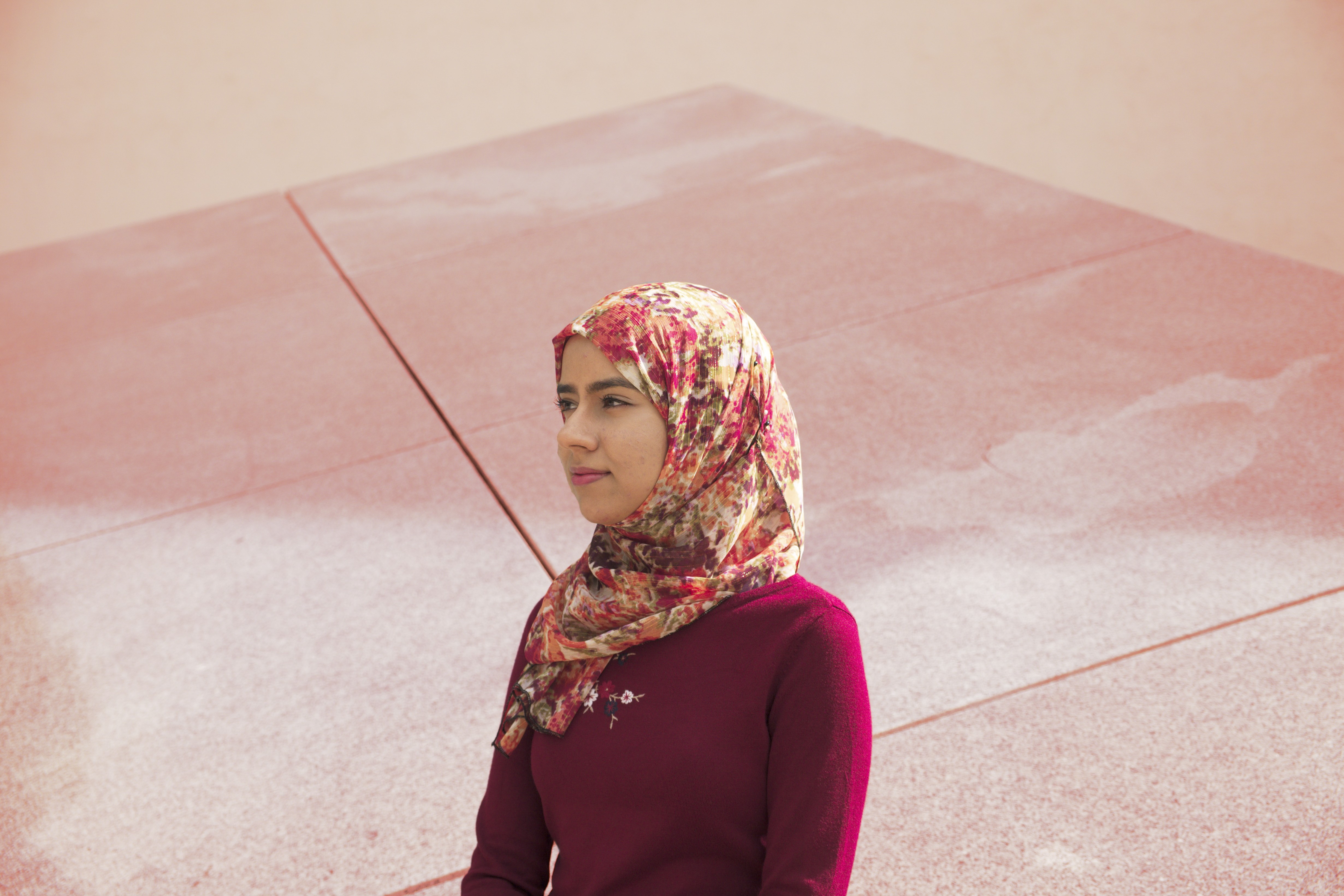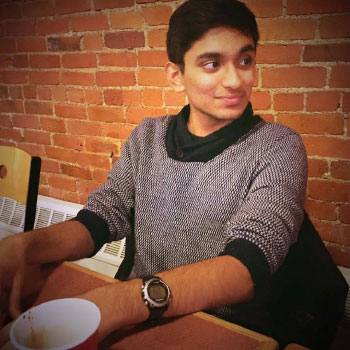Images of the refugee crisis flood every news channel on TV. Between photographs of the corpses of children washed up on Greek shores and videos of little boys covered in dust looking shell-shocked sitting in the back of an ambulance, the common viewer finds it hard to stay the rush of sympathy that begs the rather unwieldy question: What can I do?
It is no doubt a difficult question to answer. The refugee crisis sits at the intersection of global and domestic politics — how is a layman to find a point of entry into such a sprawling, challenging problem?
For many, the impenetrability is discouraging, but for Iman Siddiqi, a senior majoring in political science and Middle Eastern studies at the University of California, Irvine, perseverance and a commitment to doing her part to help end the refugee crisis led her to establish the first student-funded refugee scholarship in the United States.
I spoke with Siddiqi about her hopes for the scholarship, the challenges of crowdsourcing empathy and her plans for the future.
Shashank Rao: A lot of people hear about the refugee crisis on the news and social media. A lot of them might also want to do something, but don’t know how. How did you manage to take visible action with regard to this issue?
Iman Siddiqi: I was also among those people who were just seeing what was happening and didn’t know what to do. I thought to myself initially that in order to do something meaningful, I’d have to go to law school and get a degree to establish myself and only then would I be able to make a difference.
But I decided my first course of action would be to learn Arabic, because I really wanted to help Syrian refugees. So I enrolled in Arabic my first year and in efforts to learn Arabic outside the classroom, I connected with some Syrian refugees online. I asked them directly what it was I could do to help.
They said that they were really looking for higher-education opportunities and for scholarships because they couldn’t really afford or continue their higher education because they were stuck in camps, areas where the roads weren’t safe or where the schools were sites of attacks. So it was really just hearing it from them that inspired me to do what I did and create a scholarship for refugees.
SR: You said that you thought going to law school would help you make a difference. Do you still have plans to go to law school?
IS: I definitely still plan on going to law school, but I have new focus in mind now. I want to focus on refugee law and international law in particular.

SR: Were you always passionate about law?
IS: It’s funny because, growing up, I always wanted to be a doctor. But that dream crashed after I took AP Biology in high school and I realized it wasn’t for me. When I took AP Government in my senior year, I found it was something that came very naturally to me.
Even when I was completely focused on studying for calculus, I’d still manage to get the highest grades in government. So I decided that I would pursue a path that I was good at and picked political science when I got to college because I felt that would lead most directly to law school. My father is a lawyer, too, so I guess I had a bit of a family background in it as well.
But the real turning point for me was when I took a family trip to Turkey and saw Syrian refugees firsthand. That was a deeply impactful experience for me because I was seeing more than just the images of refugees on screen: I was seeing real people. That’s when I decided to learn Arabic.
My focus and interests also changed after that trip. I initially came into college very interested in American history and government, but seeing refugees directly turned me toward having a Middle-Eastern focus, which I then added as a second major to political science. In fact, I’m currently doing research on post-conflict Syrian civil education.
SR: How did you first get into contact with Syrian refugees?
IS: I did it through a language-exchange application and a program called “Paper Airplanes” that allowed you to tutor Syrian refugees in English. I interacted with a broad population of refugees. Some were actually still in Syria and were internally displaced; others were refugees who had fled the country, so there was a variety. But they were all college-aged and they were all hoping to finish their bachelor’s and their master’s.
SR: It sounds like you’ve done a lot of work with education. Have you always had a passion for education, or is that something that you developed by speaking with refugees who said that they wanted access to higher-ed opportunities?
IS: It’s a little bit of both. When the program was mentioned to me, it sparked a personal connection because my family is from India originally and the reason my family is in the U.S. today is that my grandfather got a scholarship to Harvard. It’s because of access to higher education that I’m an American today.
But even in high school, I was always passionate about education, particularly in education for girls in developing countries. I was part of a campus of “She’s the First,” which is a non-profit that works to provide educational opportunities for girls all over the world. So I suppose education was just something I was involved with from the beginning. I wanted to give to others what I received.
SR: Now that we’ve sort of established where you’re coming from, I’m really curious as to the story of how this scholarship got off the ground.
IS: (Laughs) It’s a bit of a long story. So, in September 2016, I heard about “Books, not Bombs,” which is a nationwide campaign in which students call on their universities to join the International Institute of Education – Syria Consortium for Higher Education and Crisis. When universities join the consortium, they agree to create scholarships for refugees, particularly Syrian refugees.
Initially, I was pushing the University of California to join the consortium, so all of fall quarter of my third year, I worked on this initiative. I’m writing up resolutions and passing resolutions at my campus; I’m calling on the UC to join that consortium; I’m helping students at other UCs also pass resolutions because we’re a total of 10 UC campuses. I wanted to show that there was support for this throughout the system before we went up to the regents.
Then, in January of 2017, I went up to the regents and I told them about this consortium and how there was so much support for creating a scholarship for refugees. They told me how it was a great cause and they wished they could help, but because the UC system is a public institution, they can’t allocate funding for these scholarships.
They couldn’t even allocate seats because that could be politicized and affect state funding. That’s when I realized if I wanted to do something — and if I wanted to do something quick in order to avoid all the bureaucracy — I would have to create my own scholarship program.
Luckily, during the spring of my third year, I won a scholarship that we have at Irvine, called “The Dalai Lama Endowed Scholarship,” which provides $6,000 funding for any project that you want to pursue.
I decided I’d use the money I received to create the scholarship program I wanted to establish. I wanted to use the funding that I got from the Dalai Lama scholarship to hold a fundraising banquet and thought that, through that banquet, I would be able to raise even more money for the scholarship.
We ended up holding the banquet this past November. I was so excited about making this scholarship for refugees a reality. I was very disappointed when I realized that the University of California couldn’t help me, but I was excited that I could still make it possible.
SR: That’s quite a story! I suppose you’ve covered some of this already, but were they any other unique challenges facing you on this journey?
IS: One of the hardest things was finding a non-profit that would partner with us. We really wanted to partner with a non-profit for two reasons: one was for transparency’s sake, just so that people knew where their funds were being held.
Second, we wanted to make sure that anyone who donated would be able to get a tax deduction. Finding an organization that was willing to do that was difficult initially. I had to speak with several different representatives of the different organization, but ultimately we settled with Access California Services (ACS), which is a non-profit that’s near our campus.
ACS works to help immigrants and refugees access services, like mental health care services, access jobs, etc. in California. It’s really great we could partner with them because they knew a lot of refugees who were interested in pursuing higher education.
So they helped us connect with those students, who actually ended up coming to the banquet, which was really neat because of a lot of times when we’d go to these fundraisers, we don’t really get to meet the people we’re planning to help. It was really cool that the donors got to meet refugee students.
SR: You said something interesting when you were talking about how you first got interested in doing something for refugees. You said that you spoke directly to them and that they told you what they needed was access to higher education.
Many times, humanitarian agencies don’t listen to the people they’re trying to help and act like the mere fact of their presence will naturally improve their conditions. Were you actively trying to counter that mentality or did you just fall into it?
IS: It was a little bit of both because my family is very involved with the local Muslim community. Pretty much every weekend, we went to some sort of fundraiser or event to help refugees and to collect funds for basic aid distribution. I did genuinely want to know what the best way to help was.
I wanted to ask refugees, “Hey, what are you actually seeing on the ground?” and what they kept saying, over and over again, was that they just wanted to finish school and get their degrees. So I guess it was a combination: I was a little bit cautious because I had already seen the work of so many different organizations, but I also just really wanted to hear it straight from refugees what they needed.
SR: I’d like to end with what you might want to tell people about your experience with refugees. The media has a lot of opinions about who refugees are, but what do you want people to know?
IS: A lot of the perceptions people have are because they don’t know otherwise. It’s easy to hold such perceptions when you haven’t actually met the real person. I would encourage people to go find their local refugee community and meet with them in real life.
I say the same thing about Muslims too because, as a Muslim myself, I know the different kinds of perceptions that keep ahold of our community. The way we try to combat that is by inviting people to our mosques and by asking people to get to know us first, so we can hopefully address any misconceptions that they might have.
It’s the same thing with refugees: You should meet them, hear their stories, understand why it was that they had to leave their countries and their homes in pursuit of safety. Perhaps then people can develop compassion and look beyond the rhetoric they hear.

















